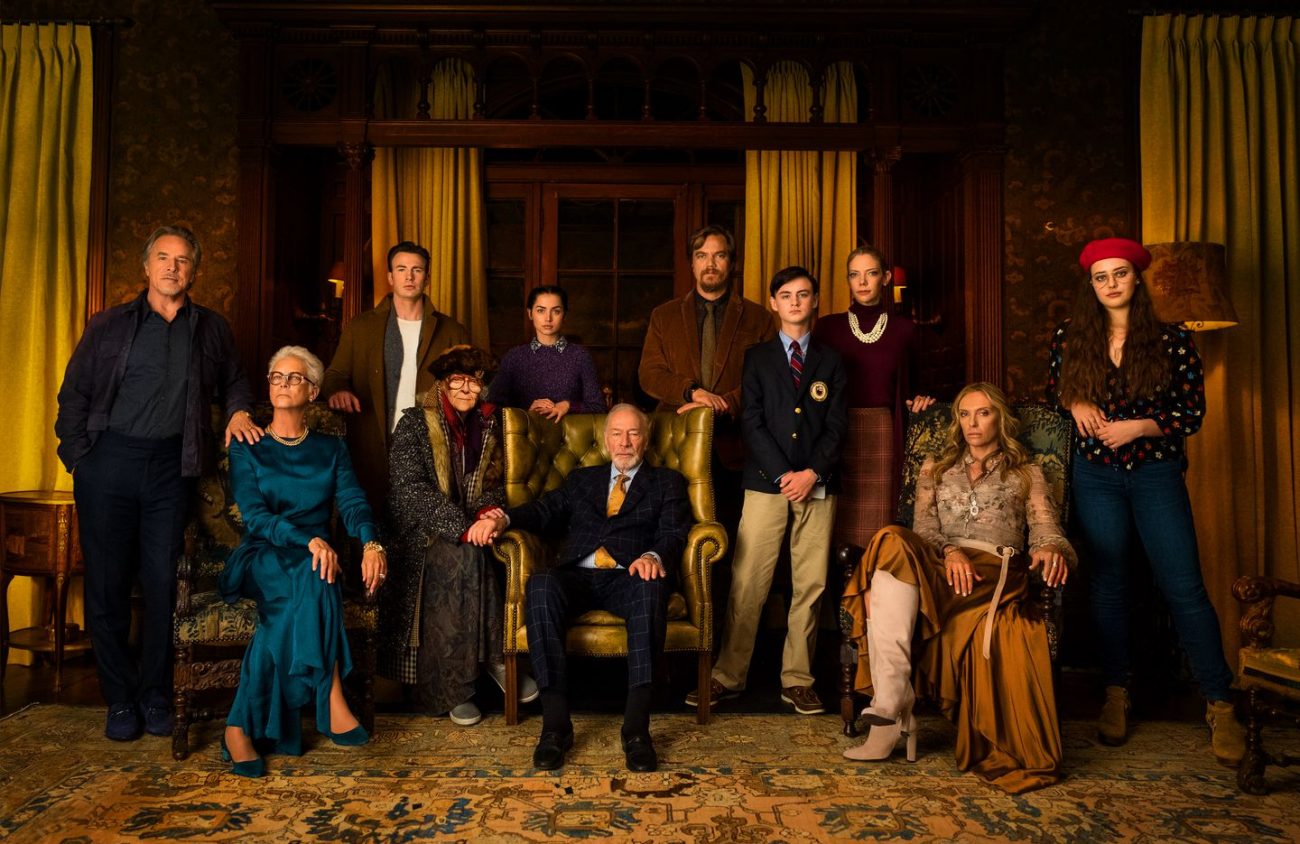How many ways can we find to murder our better natures? For the squabbling children, grandchildren and in-laws of the Thrombey family in Knives Out, the answer seems incalculable. On the night of his 85th birthday, the Thrombey patriarch, Harlan (Christopher Plummer), dies, leaving behind a publishing empire, a lot of cash and a sprawling house so stunningly set-decorated that it begs to be explored in some sort of immersive theater project.
Harlan also leaves behind the wreckage of his “games,” some of which are literal, like the games of Go he played with his grandson Ransom (Chris Evans) and his nurse, Marta (Ana de Armas). Others are more psychological, like the way he toyed with each family member on the night of his death — giving them all reason to want him dead, even if just for a short angry second.
The Thrombeys are, in the parlance of the era and this very of-the-moment film, a hot mess. Their personalities range from useless philanderer to alt-right shitbird teen, would-be lifestyle guru to power-hungry hypocrite.
Well, they’re all hypocrites, which is maybe why Harlan spent so much time with Marta, who’s one of the few Knives Out characters with anything resembling a moral compass. (I’m giving LaKeith Stanfield’s Lieutenant Elliott the benefit of the doubt, since we never really get to know him.)
Naturally, this — along with the fact that Marta is an immigrant, though the family cannot agree on her country of origin — means the Thrombeys shit on the woman at every chance they get. (Do the math on how many of them claim to have been “outvoted” on having her at Harlan’s funeral.) It also means she’s the person on whom detective Benoit Blanc (Daniel Craig) focuses, making her the reluctant Watson to his Sherlock.
This isn’t the only on-the-nose reference in writer-director Rian Johnson’s film, which name-checks the far more arch Clue, digs at the kind of white liberal who thinks quoting Hamilton demonstrates his wokeness and includes a delightful nod to Star Wars.
Johnson loves to build new castles in genre’s sandbox (see also: Brick, Looper), and Knives Out is no exception: here, he updates the whodunnit, revising the murder mystery until its points are aimed straight at our current moment.
If I wished those points were a little sharper, well, it feels almost churlish to want more bite from a quirky, smart, original film that clearly accomplishes what it set out to do. And I don’t just mean the clever storytelling and delicious performances (especially Toni Collette, contoured to within an inch of her character’s branded life, and Jamie Lee Curtis, towering in monochrome pantsuits).
Knives Out effectively re-establishes Johnson post-The Last Jedi as a filmmaker with a lot more on his mind than just franchise pictures. Johnson’s vision translates a love for classic murder mysteries into a kaleidoscopic ensemble piece that twists and spins, using the structure and tropes of mystery — and comedy — to expose the endless ways humans justify being absolutely rotten to each other.
Johnson isn’t interested in outsmarting the audience; right from the get-go he gives you the tools to figure out much of what’s going to happen. “You have to tap, in the purest way you can, into what you love about the stuff you love,” he told a New York interviewer, and that’s exactly what he does: taps into what he loves, and does his damndest to show us why.
